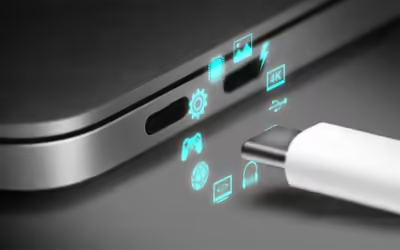For years, wearable technology has been synonymous with fitness tracking—counting steps, measuring heart rate, and logging workouts. But today’s wearable health tech is evolving far beyond fitness, entering new frontiers in medical monitoring, mental health, and chronic disease management. The next generation of wearables is poised to revolutionize healthcare by offering real-time diagnostics, early disease detection, and personalized treatment plans. Let’s explore what’s next in wearable health technology.
1. Continuous Glucose Monitoring for Non-Diabetics
Continuous glucose monitors (CGMs) have been a game-changer for diabetics, but they are now making their way into the mainstream for individuals without diabetes. Companies like Levels and Nutrisense are developing CGMs aimed at optimizing diet, energy levels, and metabolic health. These wearables provide real-time glucose tracking, helping users understand how different foods and activities impact their blood sugar levels, leading to better nutritional choices and improved overall health.
2. Smart Wearables for Heart Health
Beyond simple heart rate monitoring, the latest wearables can track ECG (electrocardiograms), detect atrial fibrillation (AFib), and even monitor blood pressure without requiring a cuff. Devices like the Apple Watch and Fitbit Sense now offer advanced heart health monitoring features, while startups like Withings and Omron are developing compact wearables that can continuously track cardiovascular metrics. These innovations provide early warnings for heart disease, allowing for timely medical intervention.
3. Wearables for Mental Health and Stress Management
Stress and mental health tracking are becoming a major focus for wearable tech. Devices such as the WHOOP strap, Oura Ring, and Muse headband use heart rate variability (HRV), sleep patterns, and brainwave analysis to monitor stress levels and overall mental well-being. Some wearables now incorporate guided meditation, biofeedback, and even electrotherapy to help users manage anxiety and improve sleep quality.
4. Smart Rings and Patches for Sleep Optimization
While smartwatches have dominated sleep tracking, new technologies like smart rings and skin patches are emerging as more comfortable alternatives. The Oura Ring, for example, provides in-depth sleep analytics without the bulk of a watch. Meanwhile, emerging skin patches use biosensors to track body temperature, respiration rate, and blood oxygen levels, helping users fine-tune their sleep environment and habits.
5. AI-Powered Personalized Health Insights
Artificial intelligence is playing a crucial role in wearable health technology. AI-driven platforms analyze the vast amounts of biometric data collected from wearables and provide actionable insights. These systems can predict health trends, suggest lifestyle changes, and even alert users to potential health risks before symptoms appear. Companies like Fitbit, Apple, and Garmin are integrating AI into their platforms to offer personalized coaching based on real-time data.
6. Wearables for Women’s Health
Wearable health tech is increasingly catering to women’s health needs. Devices like Ava and Tempdrop track menstrual cycles, ovulation, and fertility using temperature, heart rate, and hormone fluctuations. These wearables can help women monitor reproductive health, detect early signs of hormonal imbalances, and even assist in pregnancy planning. More advanced applications include menopause tracking and real-time hormonal analysis.
7. Augmented Reality (AR) and Smart Glasses in Healthcare
Smart glasses and AR wearables are beginning to enhance healthcare by assisting doctors, surgeons, and even patients. Devices like the Microsoft HoloLens and Google Glass Enterprise Edition allow healthcare professionals to visualize medical data, conduct remote consultations, and improve surgical precision. These wearables could soon be used for patient rehabilitation, medical education, and even real-time disease management.
8. Non-Invasive Blood Pressure and Hydration Monitoring
Traditional blood pressure cuffs are being replaced by continuous, non-invasive monitoring wearables. Advanced optical sensors and bioimpedance technology enable devices like Aktiia’s blood pressure monitor to track readings throughout the day without the need for inflation cuffs. Additionally, hydration tracking wearables, such as Nix, monitor electrolyte levels and hydration status, ensuring athletes and individuals maintain optimal fluid balance.
9. Smart Contact Lenses for Health Monitoring
One of the most futuristic developments in wearable health tech is the rise of smart contact lenses. Companies like Mojo Vision and researchers from institutions like Stanford are developing lenses that can monitor glucose levels, detect eye diseases, and even provide augmented reality overlays for vision enhancement. These innovations could transform how we diagnose and manage eye-related and systemic health conditions.
The Future of Wearable Health Tech
As wearable health technology continues to evolve, we can expect even more seamless integration with everyday life. Future advancements could include nanotechnology-based sensors, implantable devices, and real-time health coaching powered by AI. The ultimate goal is to shift from reactive to proactive healthcare, where wearables help prevent diseases before they become critical.
Whether it’s tracking mental well-being, optimizing metabolic health, or enabling early disease detection, wearable technology is set to redefine personal healthcare. As these innovations continue to develop, they hold the potential to make personalized, real-time health management a reality for millions around the world.



